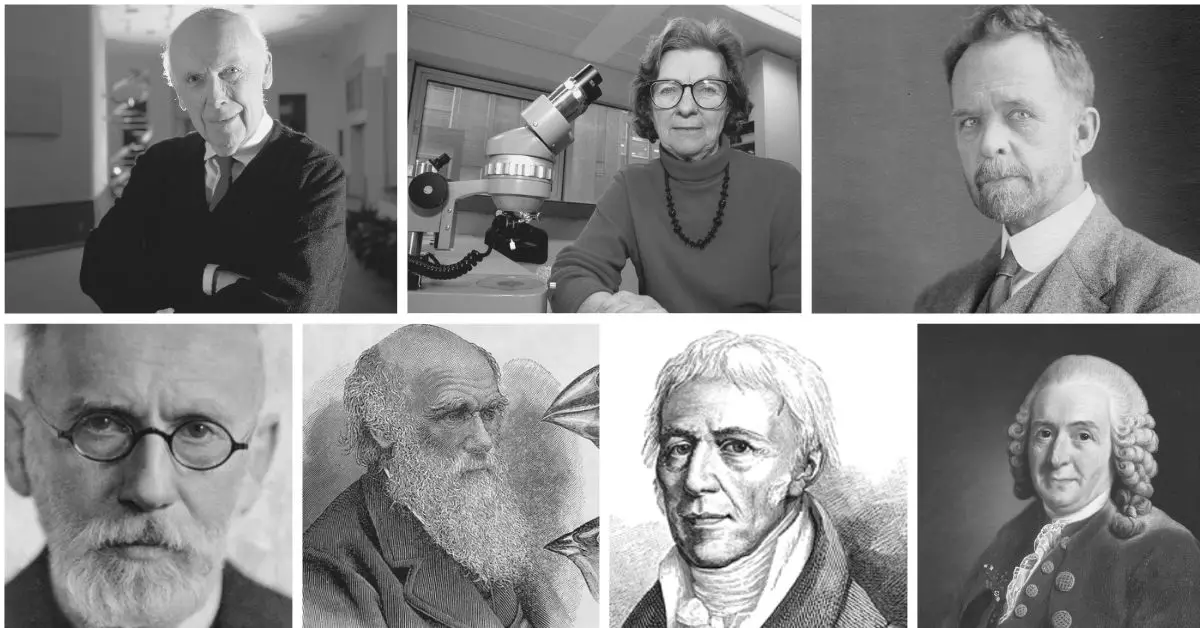To celebrate scientists and scientific advancements, we have collected a list of the most famous animal scientists that will inspire us for the greater good.
In the animal science space, a few people stand out. These scientists have made important contributions to our understanding of the animal kingdom. Their work has helped us save endangered species and teach us how to better care for animals. Here are some of the 19 most famous animal scientists.
To provide you with quality and credible content, we’ve written this article with attention to detail. We included information on the scientist’s background, their work in animal science and why they’re important.
Let’s get started
Table of Contents
Famous Animal Scientists
#19. Stephen Robert Irwin (1962-2006): The Crocodile Hunter

What makes Stephen Robert Irwin famous?
Stephen Robert Irwin, also known as “The Crocodile Hunter,” was an Australian zoologist and television personality. He was best known for co-hosting television series focusing on crocodiles.
Irwin’s most famous documentary was The Crocodile Hunter, which he hosted with his wife, Terri. Irwin became a global star during this time thanks to his enthusiastic and charismatic personality and passion for reptiles.
He was killed in 2006 after being attacked by a stingray while filming an underwater documentary near Australia’s Great Barrier Reef.
[Source: Encyclopedia Britannica]
#18. Ernest Haeckel (1834-1919): One of The Fathers of Zoology
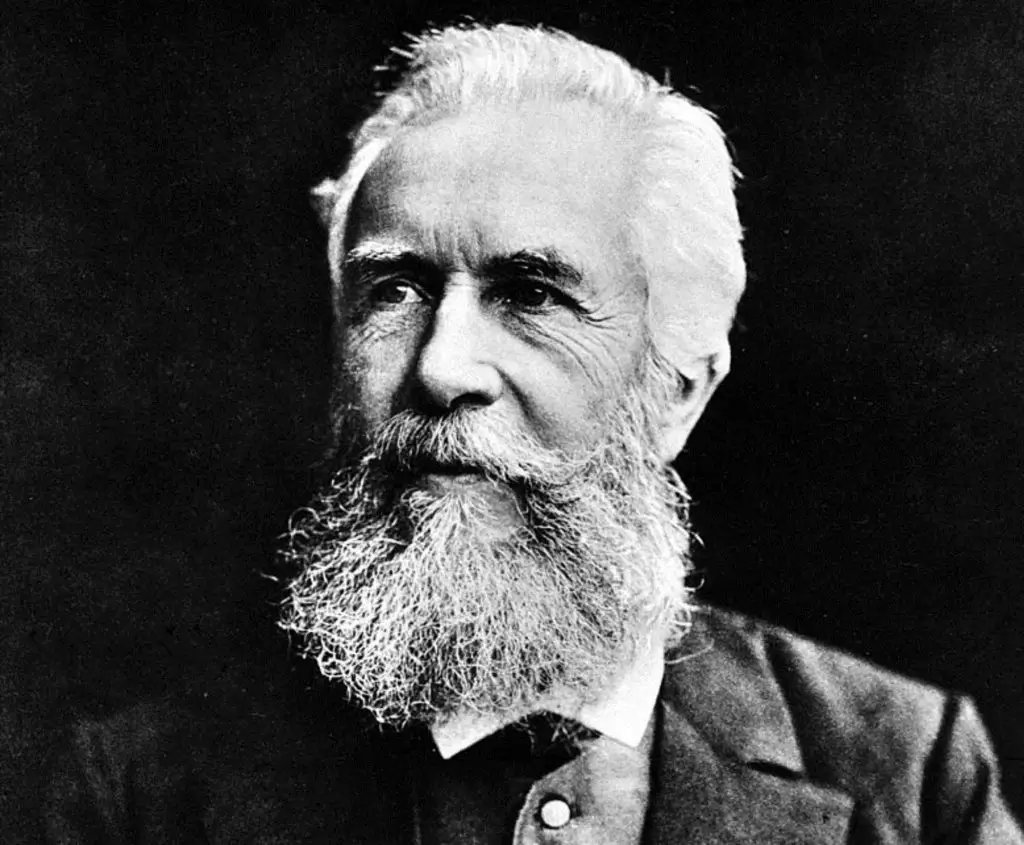
What makes Ernest Haeckel famous?
In the late 1800s, German zoologist and physician Ernest Haeckel wasn’t just a man of science but had truly mastered it.
Haeckel was the first to coin the term “ecology.” But he is best known for creating one of the foremost genealogical trees for humans.
As a proponent of Charles Darwin’s theories, Haeckel popularized Darwinism in his country. His least popular work involved recapitulation theory. This is the idea that an organism’s embryological development parallels its evolutionary history.
He was also known as one of the fathers of eugenics. This movement sought to improve human genetics by promoting reproduction between individuals with desirable traits. But despite this legacy, many consider Haeckel one of the most influential biologists of all time.
You might also like:
- Zoology Impact Factor & Key Scientometrics
- American Zoologist Impact Factor & Key Scientometrics
- Current Zoology Impact Factor & Key Scientometrics
- Frontiers in Zoology Impact Factor & Key Scientometrics
[Source: Encyclopedia Britannica]
#17. Walter Reed (1851-1902): The American Scientist Who Confirmed That Some Mosquito Species Transmit Yellow Fever

What makes Walter Reed famous?
In addition to being an American scientist who served in the US Army as a physician, he also once found himself in charge of a massive experiment on yellow fever. This experiment would confirm Carlos Finlay’s findings on the transmission of this deadly disease.
Reed was born in Virginia on September 13, 1851. He attended medical school at New York University, graduating with his medical degree in 1870.
In time, Reed became interested in tropical medicine and ways to prevent diseases like yellow fever from spreading through populations.
His team conducted several experiments over several months, leading him to believe that mosquitoes were responsible for transmitting yellow fever from person to person.
[Source: Encyclopedia Britannica]
Similar Articles:
- 20+ Famous Astronomy Scientists That You Should Know
- 17 Famous Greek Scientists That You Should Know
- 30+ Famous Atheist Scientists That You Should Know
#16. John Muir (1838-1914): The Father of National Parks
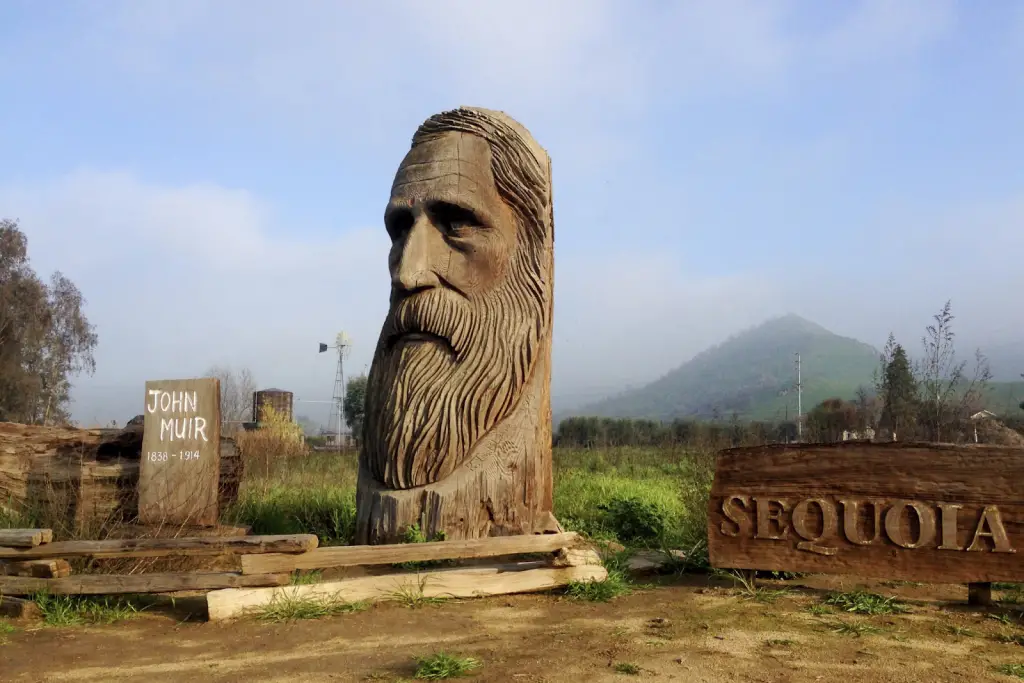
What makes John Muir famous?
John Muir is one of the most recognizable names in environmentalism, and for good reason. He was born in Scotland but grew up in Wisconsin. He attended the University of Wisconsin for biology classes and developed an interest in nature.
It wasn’t long before Muir set his sights on conserving wild creatures. He then played a leading role in the establishment of national parks, including Sequoia National Park and Yosemite National Park. These parks are considered some of the most beautiful places on earth—they resulted from John Muir’s conservation efforts.
John Muir was also a co-founder of the Sierra Club—an environmental conservation organization. He believed humans should respect nature, so he pushed for wilderness preservation across America.
What’s the best John Muir quote?
“Of all the paths you take in life, make sure a few of them are dirt.”
[Source: Sierra Club ]
You might also like:
- Top 30+ Famous Biology Scientists That You Should Know
- Top 30+ Famous Atheist Scientists That You Should Know
- Top 17 Famous Modern Scientists That You Should Know
#15. Aristotle (384 BC-322 BC): The Father of Biology

What makes Aristotle famous?
Aristotle was a man of knowledge. This Greek polymath is best known as a philosopher, but he also contributed to several other fields, including zoology and physics.
In his books, Aristotle described the morphology and behavior of various cephalopods, catfish, frogfish, and other sea creatures. He also studied ruminants and explained their hearts.
Aristotle had an idea about evolution but believed it resulted from accidents. Charles Darwin shared similar views and developed the theory of evolution.
You might also like:
- 10 Highest Paying Zoology Jobs to Consider
- Journal of Zoology
- Frontiers in Zoology
- 25 Best Zoology Schools In The US
- Zoology and Ecology
[Source: Encyclopedia Britannica]
#14. Karl von Frisch (1886-1982): The German Scientist Who Received The Nobel Prize for His Contributions To Ethology

What makes Karl von Frisch famous?
Karl von Frisch was a bee scientist. That’s right: he was a zoologist who specialized in bees. Frisch spent his career figuring out why bees dance and how they do it.
His most famous accomplishment was his work on honey bee communication through dance language, which he published as The Dancing Bees in 1927. This book earned him international recognition as one of the world’s foremost animal behavior and communication experts.
Karl von Frisch shared the 1973 Nobel Prize in Physiology or Medicine for his work on bees.
[Source: The Nobel Prize ]
Similar Articles:
- 16 Famous Scientists With Learning Disabilities That You Should Know
- 30 Famous Medical LaBraWithry Scientists That You Should Know
- 17 Famous Electrical Scientists That You Should Know
#13. Johan Christian Fabricius (1745-1808): Carl Linnaeus’s Student Who Pioneered Modern Taxonomy
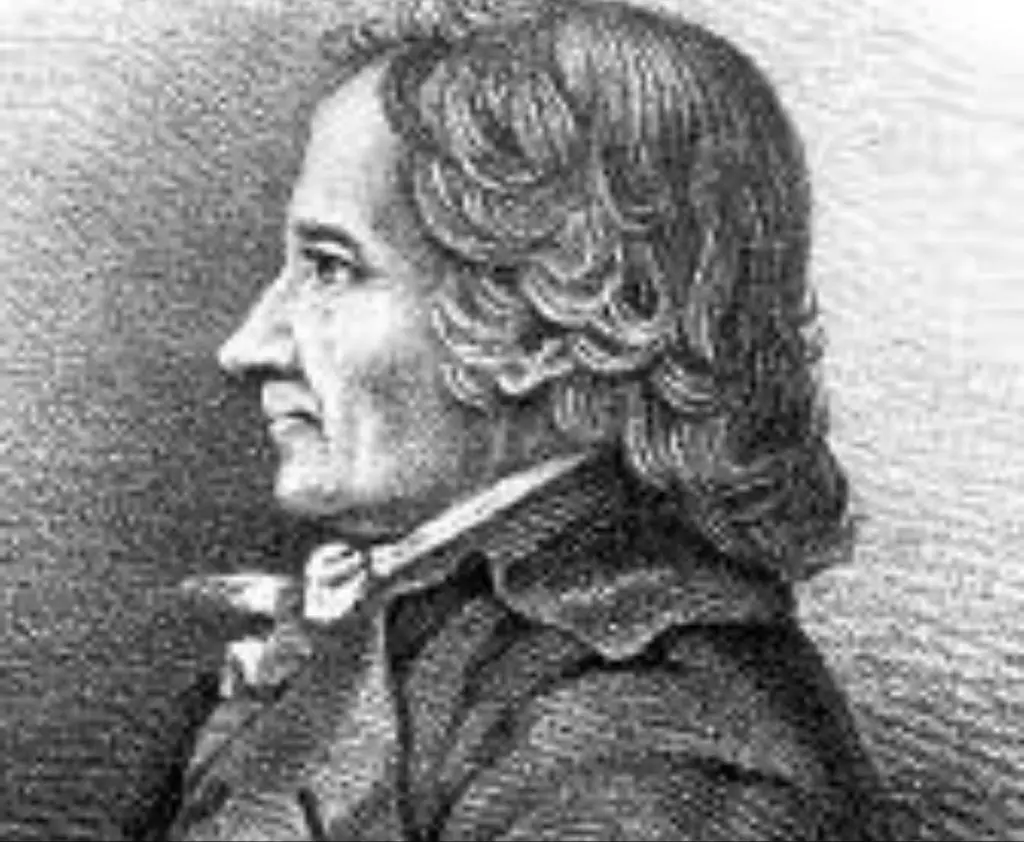
What makes Johann Christian Fabricius famous?
Johan Christian Fabricius, a Danish zoologist, is best known for pioneering modern insect classification. He contributed the study of crustaceans, arachnids, insects, and arthropods to the field of zoology.
Under the guidance of Carl Linnaeus, Fabricius described over 10,000 animals.
His most famous work is Systema Entomologiae (1775), one of the most important entomological works ever written. Entomologists still use it today as a reference point when classifying new species.
[Source: Encyclopedia Britannica]
#12. Louis Agassiz (1807-1873): One of The Founding Fathers of The Study of Fish

What makes Louis Agassiz famous?
Louis Agassiz was an American biologist born in Switzerland on May 28, 1807. He is best known for his work in ichthyology—the study and classification of fish.
Agassiz had strong observational skills, which helped him make groundbreaking discoveries in geology and zoology, among others. He also pioneered glaciology.
Louis Agassiz strongly opposed Darwin’s evolutionary theory. Instead, he supported creationism. This is evident in his writings, which have attracted criticism from non-bible scientists.
[Science: Encyclopedia Britannica]
#11. Ernest Everett Just (1883-1941): A Pioneering African-American Biologist

What makes Ernest Everett Just famous?
Ernest Everett Just was an American biologist born in 1883 to Charles Jr. and Mary. He spent his early life in South Carolina.
Everett Just is best known for research that focused on experimental pathogenesis, fertilization, dehydration in active cells, effects of radiation on cells, hydration, and cell division.
Through his work, he established himself as an authority in biology and paved the way for future advances in the study of fertilization.
What’s the best Ernest Everett quote?
“We feel the beauty of nature because we are part of nature and because we know that however much in our separate domains we abstract from the unity of Nature, this unity remains. Although we may deal with particulars, we return finally to the whole pattern woven out of these.”
[Sources: Encyclopedia.com, Afric Network Channel]
Similar Articles:
- 17 Famous Earth Scientists That You Should Know
- 18 Famous Rocket Scientists That You Should Know
- 17 Famous Disabled Scientists That You Should Know
#10. Georges Cuvier (1769-1832): The Founding Father of Paleontology
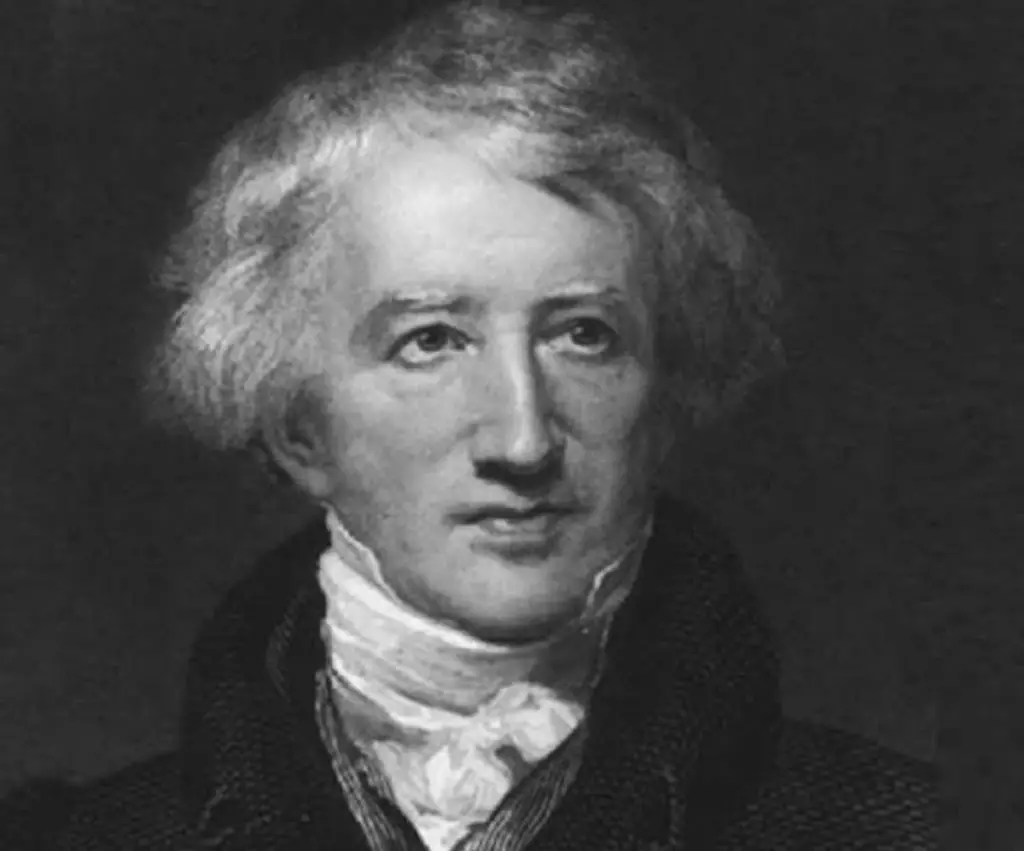
What makes Georges Cuvier famous?
The name Georges Cuvier probably doesn’t ring a bell for most people. But if you’re interested in natural history, you’ve probably heard of him. That’s because he was kind of a big deal.
Cuvier was born on August 23rd, 1769. He was a zoologist and naturalist. Georges Cuvier is best known for his work which led to the establishment of paleontology and comparative anatomy.
Cuvier was also famous for critiquing the theories of evolution put forth by Jean-Baptiste Lamarck and others during that period. Lamarck believed in spontaneous generation (that life could come from non-living matter) and transmutation (that one kind of organism could turn into another).
On the other hand, Cuvier believed that species did not change over time because they were fixed at creation.
[Source: Encyclopedia Britannica]
#9. Dian Fossey (1932-1985): The Foremost Expert in Gorillas
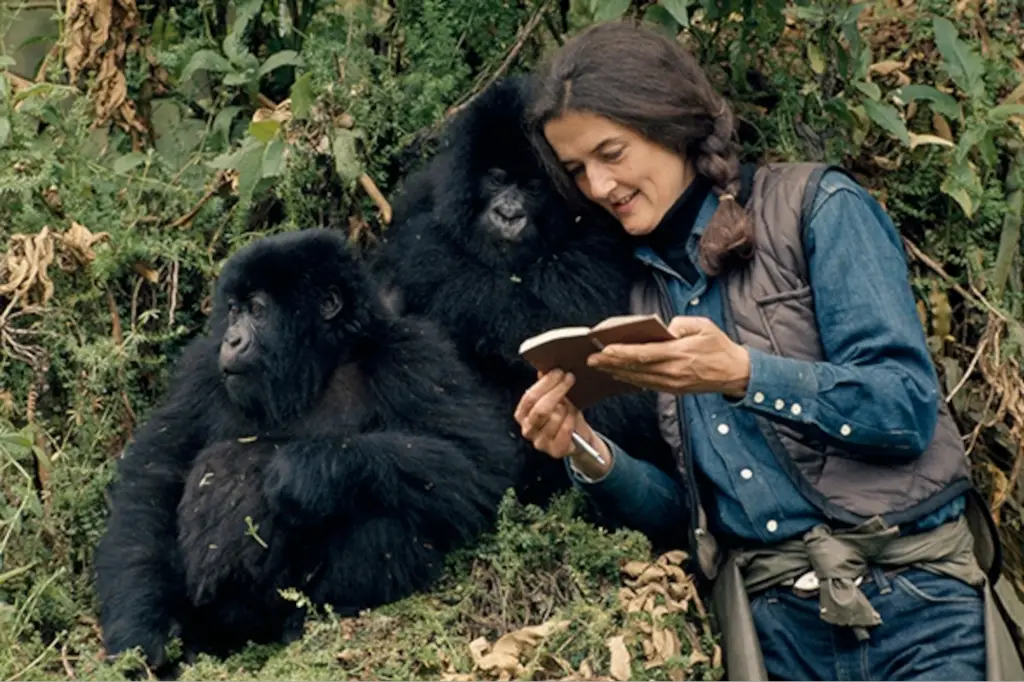
What makes Dian Fossey famous?
Dian Fossey was an American primatologist best known for her research on mountain gorillas. She was a part of the “trimates,” a group of researchers who studied chimpanzees, orangutans, and gorillas.
Fossey is most famous for her book Gorillas in the Mist, which chronicles her work with mountain gorilla groups in Rwanda and other places.
Fossey’s work was important because it helped to show how humans can affect primate populations and ecosystems through poaching, habitat destruction, and disease transmission.
[Source: Encyclopedia Britannica]
#8. Jane Goodall (1934-Present): The Scientist Who Protected Wild Chimpanzees In Africa
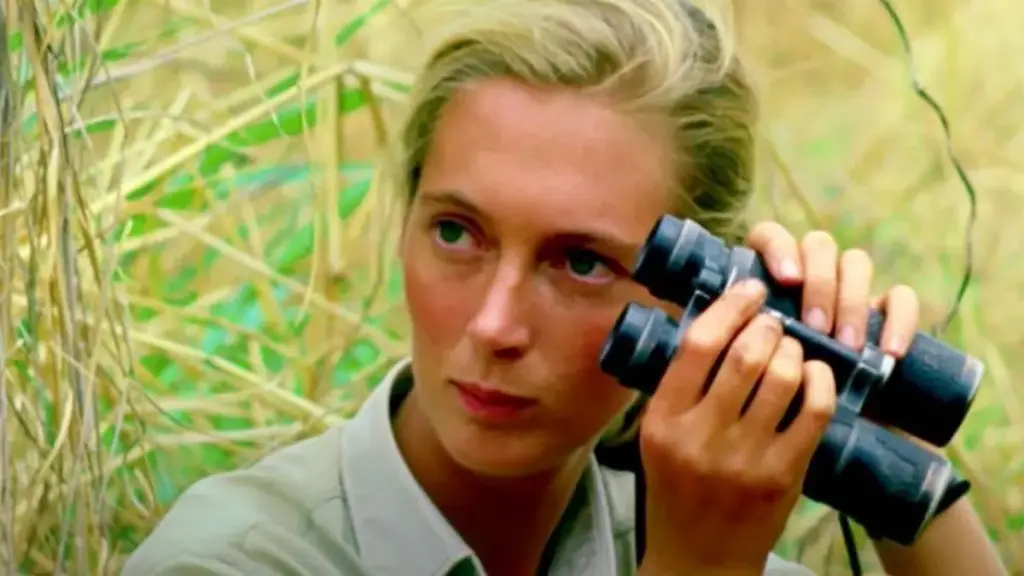
What makes Jane Goodall famous?
Jane Goodall is a rockstar in the world of anthropology. She’s been studying chimpanzees for about 60 years and has already impacted our understanding of animal behavior.
Goodall was born in 1934 in London and became one of the world’s most renowned animal conservationists.
Her work at Gombe Stream National Park initially focused on how chimps act as social beings and how they use tools. However, she quickly became fascinated by their behavior within their natural environment.
And it turns out that Jane’s focus on the smaller details of chimpanzee life has helped us understand how humans evolved into what we are today—and how much more there is to learn about our closest relatives.
The Jane Goodall Institute (which she founded) is one of the organizations that protect endangered species of chimpanzees.
What’s the best Jane Goodall quote?
“What you do makes a difference, and you have to decide what kind of difference you want to make.”
[Source: National Geographic]
Similar Articles:
- 18 Famous Swedish Scientists That You Should Know
- 15 Famous Taiwanese Scientists That You Should Know
- 16 Famous Sport Scientists That You Should Know
#7. Carolus Linnaeus (1707-1778): The Father of Taxonomy
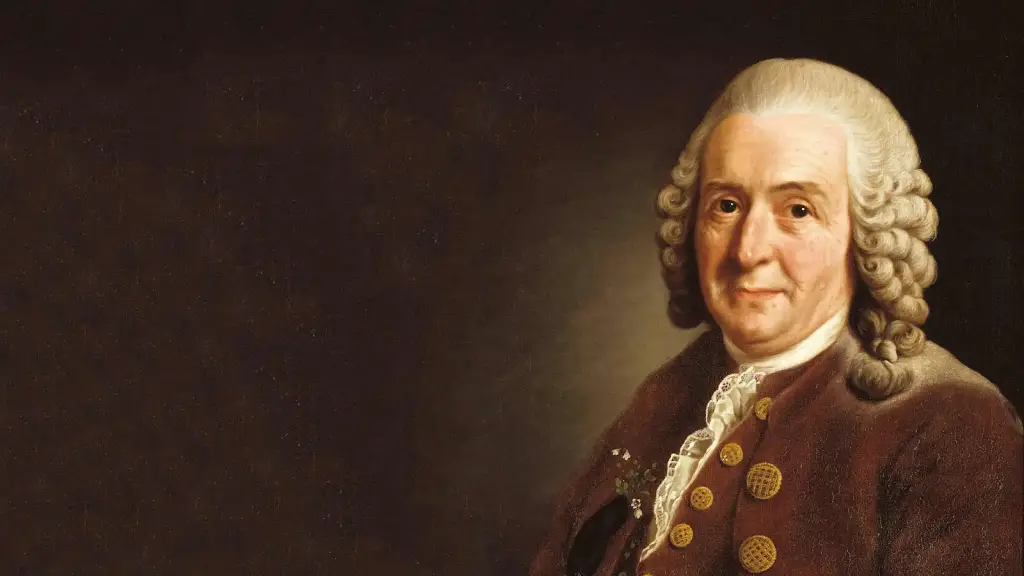
What makes Carolus Linnaeus famous?
Carolus Linnaeus was a Swedish scientist known for popularizing a new method of naming organisms called binomial nomenclature. This system proposed giving living organisms two-part names. His work pioneered modern taxonomy.
Linnaeus was born in Southern Sweden, where he studied before beginning his career at Uppsala University.
[Science: Encyclopedia Britannica]
#6. Jean-Baptiste Lamarck (1744-1829): The French Scientist Who Pioneered The Field of Invertebrate Zoology

What makes Jean-Baptiste Lamarck famous?
There’s a lot of history to know when you’re talking about Jean-Baptiste Lamarck. He was a French naturalist and biologist born in England on August 1, 1744.
This scientist is best known for Lamarckism, his explanation of biological evolution. Lamarck was the first person to explain how animals could evolve through the inheritance of acquired characteristics.
This theory was later called Lamarckism. Lamarck believed that all life on earth evolved from one simple organism and that every species had an inherent tendency to evolve into another species over time.
Lamarck was one of the earliest known experts on invertebrate zoology. He studied several different animals, from worms to insects to mollusks.
[Source: Encyclopedia Britannica]
#5. Charles Darwin (1809-1882): The Father of Evolution

What makes Charles Darwin famous?
Charles Darwin was an English biologist, naturalist, and geologist who contributed significantly to evolutionary biology through his theory of natural selection.
This theory states that individuals best suited to survive and reproduce will pass on their genes to future generations, while those less fit will not succeed as well as others. The result is that certain traits become more common over time because of this process of natural selection.
Darwin believed that all living things originated from one ancestor. He also wrote On the Origin of Species, which became one of the most influential books ever written on evolution—and it still is today.
What’s the best Charles Darwin quote?
“It’s not the strongest of species that survive, nor the most intelligent, but the one most responsive to change.”
[Source: Encyclopedia Britannica]
#4. Paul Ehrlich (1854-1915): The Discoverer of Syphilis Treatment
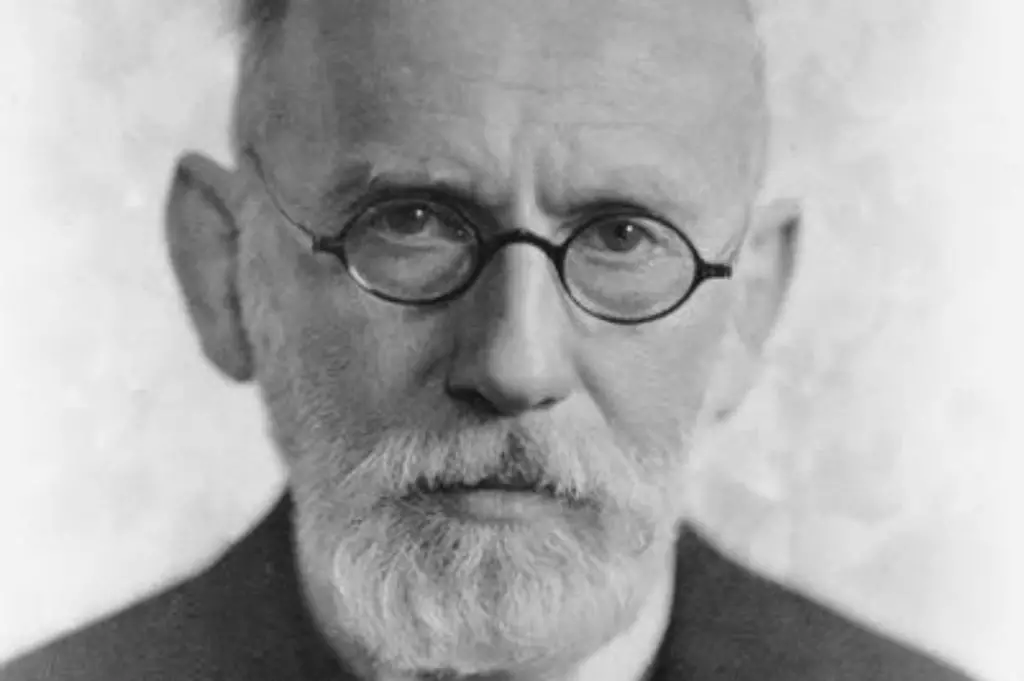
What makes Paul Ehrlich famous?
Paul Ehrlich was a German physician. He is notable for his research on antimicrobial chemotherapy, immunology, and hematology.
In 1909, Ehrlich discovered that treating syphilis with arsphenamine could cure it. This treatment was so effective that even when patients went untreated for years, they would still be cured if they received treatment after being treated for syphilis.
He also made significant contributions to staining techniques, making it possible for medical scientists to diagnose diseases like cancer and leukemia more accurately than ever before.
As part of his work, Ehrlich formed and popularized his concept of a magic bullet. He believed medical doctors could kill the disease-causing microbes without harming the patient’s body.
Paul Ehrlich received the Nobel Prize in Physiology or Medicine in 1908 for his research, which has taken medicine to the next level in treating and diagnosing diseases.
[Source: The Nobel Prize ]
#3. Thomas Hunt Morgan (1866-1945): The Nobel Laureate & An Expert in Heredity

What makes Thomas Hunt Morgan famous?
Thomas Hunt Morgan was an American geneticist and evolutionary biologist best known for his work on the fruit fly. He laid the foundation of modern genetics.
Morgan was born in Kentucky, USA, on September 25, 1866, and studied at Johns Hopkins University, earning his P.h.D. His research focused on understanding the mechanisms of heredity as well as how genes are passed from one generation to another.
This finding led him to discover that chromosomes contain genes and that each chromosome carries only one kind of gene pair (a dominant and recessive gene).
Morgan also found that genes are arranged linearly along chromosomes and can be inherited together or independently. In 1933, Morgan received the Nobel Prize in Physiology or Medicine for his work on chromosomes and their function in heredity.
[Source: Encyclopedia Britannica]
#2. Anne McLaren (1927-2007): The Lady Who Pioneered In Vitro Fertilization
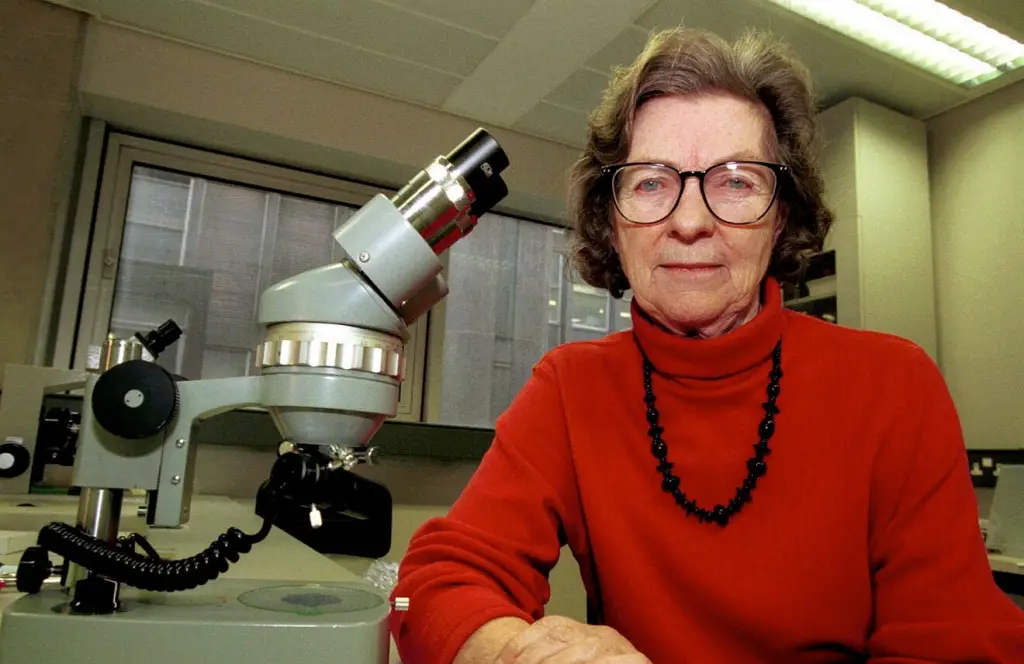
What makes Anne McLaren famous?
Anne McLaren was a British geneticist born in England on April 26, 1927. She studied at Oxford University.
McLaren is best known for her groundbreaking research in developmental biology. Her most notable contribution to science was the discovery of the role played by DNA in embryonic cell differentiation and development.
This work gave rise to in vitro fertilization (IVF), which has successfully helped people to have children. McLaren received the Royal Prize and became a fellow of the Royal Society.
[Source: Encyclopedia Britannica]
#1. James D. Watson ( 1928-Present): Father of DNA Research
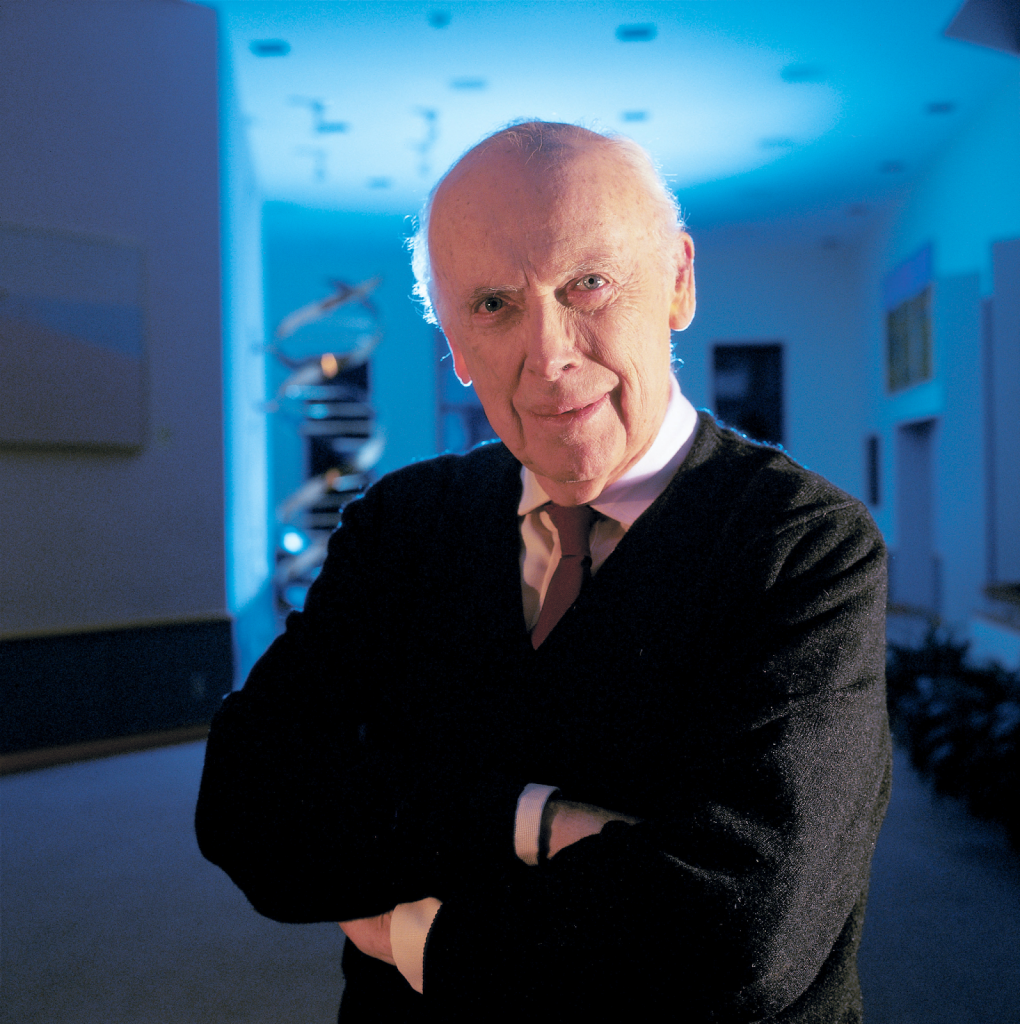
What makes James D. Watson famous?
There have been a lot of famous left-handed scientists in the world, but none is as renowned as James Dewey Watson. You might not know the name James Dewey Watson, but if you’re a science nerd, chances are you’ve heard of him.
For starters, he’s been called “the father of DNA research.” He was born in 1928 in Chicago. He went to the University of Chicago for his undergraduate degree in genetics before moving to Indiana to complete his doctorate.
Watson is best known for his work with Francis Crick and Maurice Wilkins on the structure of DNA. He proposed that DNA is a double helix that consists of molecules wrapped around each other like a ladder.
This was the first time anyone had suggested such a structure for DNA. This study contributed to our understanding of how genes are passed on from generation to generation.
Watson shared a Nobel Prize with Maurice Wilkins and Francis Crick for their contributions to understanding Nucleic acids.
What’s the best James D. Watson quote?
“Today, the theory of evolution is an accepted fact for everyone but a fundamentalist minority, whose objections are based not on reasoning but on doctrinaire adherence to religious principles.”
[Source: The Nobel Prize]
Final Thoughts
These animal scientists had a passion for science. They were curious and wanted to know why animals acted a certain way. They used their knowledge of science to help animals and humans alike.
We hope you enjoyed learning about the top 19 animal scientists. If you want to share some interesting facts about your favorite scientist, leave a comment below.

